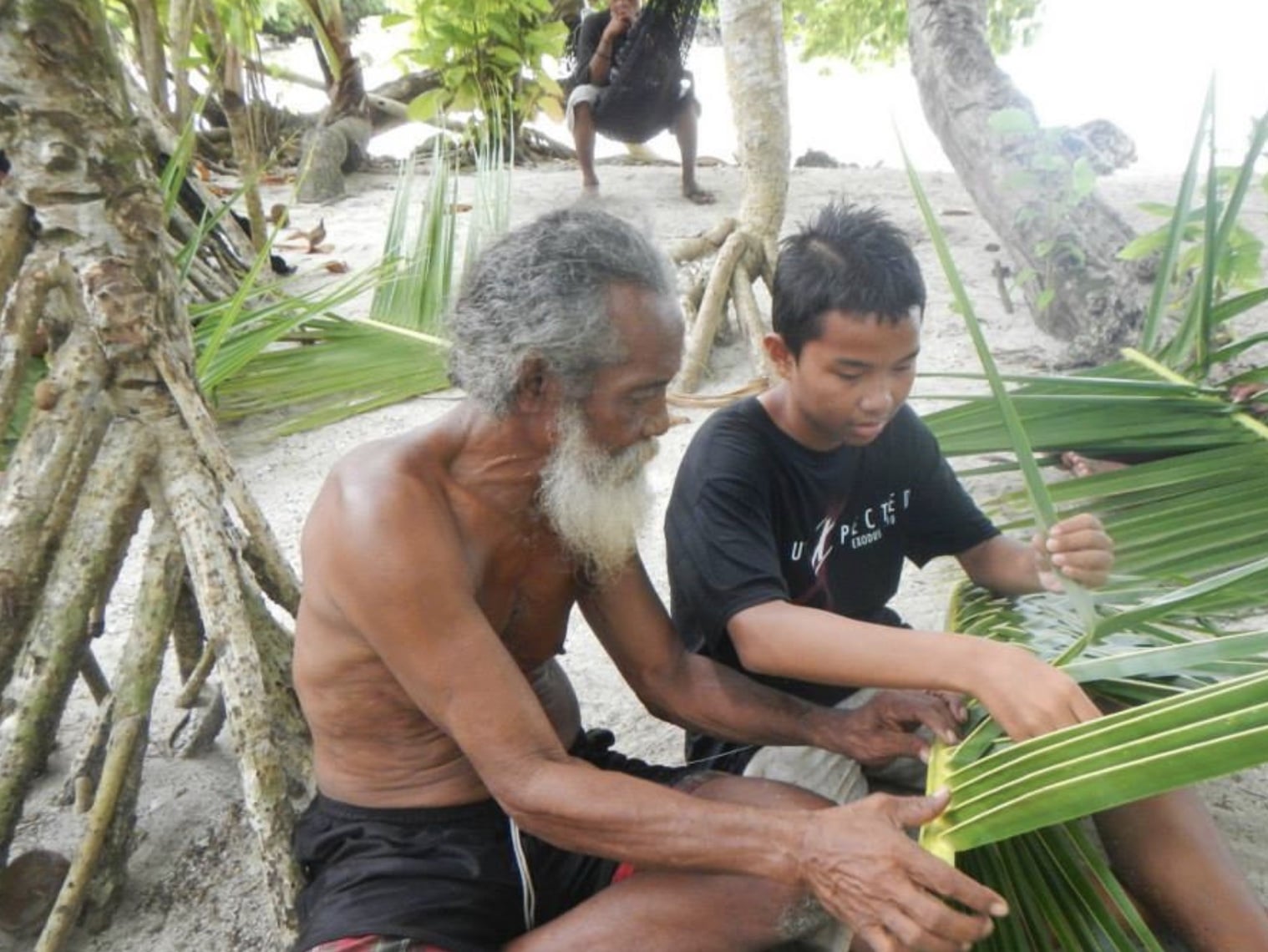My future wife and I met in training in 1966 and headed to Ponape. The island was home for about 26,000 people and a few miles of dusty road, where mangrove swamps met sheltered lagoons. No one dared venture into the jungle-dense mountainous interior. Nancy taught at a local school and I was assigned as the first attorney to work in Ponape.
I lived with a Ponapean family in a tin-roofed shack. The shower spurted ice-cold water and I had to light a coil each night to keep the mosquitos away. My office was in the Court House — a Quonset hut left by the US Navy after World War II.
I worked next to the Ponapean public defender, Yoster Carl, who had six weeks of legal training. The presiding judge, Karl Kohler, was a distinguished tribal leader, a Nanmarki, with some German ancestry. Micronesia, now a United Nations Trusteeship, had been occupied by the Spanish, the Germans, the Japanese, and the US Navy.
On my first day, Yoster came in with a question about a young man from an outer island. He had gotten drunk on fermented coconut juice and created quite a nuisance. He was sentenced to 30 days in jail, but the clerk of courts had mistakenly written down 30 months. After 30 days passed, the Sheriff refused to release the young man. Yoster asked me: “What should we do?”
I pulled down a dusty book donated by the New York Bar Association and helped Yoster draft a Writ of Habeas Corpus. It sought immediate release of the prisoner. With the Writ in hand, the Sheriff asked, “What should I do now?”
Because a lawyer cannot represent both the client and the prosecutor in a case, I sent a cable to the Chief Justice of the High Court who confirmed my recommendation that I work impartially as a teacher with all parties. Judge Kohler then assembled all the parties and ordered the Sheriff to release the prisoner. The young man soon boarded a ship back to his island.
The first recorded High Court decision in the Trust Territories, known as “the case of the purple panties,” required reconciling local customs with statutory law. Practices in local communities allowed a young male suitor to sneak into a girl’s hut, sleep with her, and take her panties as a trophy. If the girl and her parents were happy with the young man, there was no problem. But if not, the young man risked being chased away with a machete. In this case, the parents brought charges of trespass, burglary, and larceny against the intruder. However, the High Court dismissed all charges, except trespassing, and reduced the sentence to probation. This first case was typical of the blending between laws and local customs.
A fledgling democracy began to take shape while I worked with the courts, the legislature, trial practitioners, importers, and exporters. I started a magazine, the Micronesian Advocate, a newspaper, the Senyavin Times, and the Trust Territory Reporter. Trust Territory law was an interesting blend of US statutory law, local customs, and English common law.
During my experience as a Peace Corps volunteer, I learned to appreciate Micronesian hospitality and the sharing of modest wealth among family, friends, and strangers. Unlike in Western cultures, it is rare to expect something in return. I also learned to distinguish between values truly universal from those that reflected a particular culture. For example, it was not unusual to see women doing their laundry bare breasted at the river—but they would never expose their thighs. The Micronesian community went into shock when a long-awaited US Congressional delegation showed up with the lone female member wearing short pants!
Later in life, when I served as an Ambassador to a UN agency, I found my Peace Corps experience invaluable in understanding different cultures and perspectives. Peace Corps values helped shape our family, as well. Our son, Bion, served as a PCV in South Africa and is now a Foreign Service officer in Tanzania.






